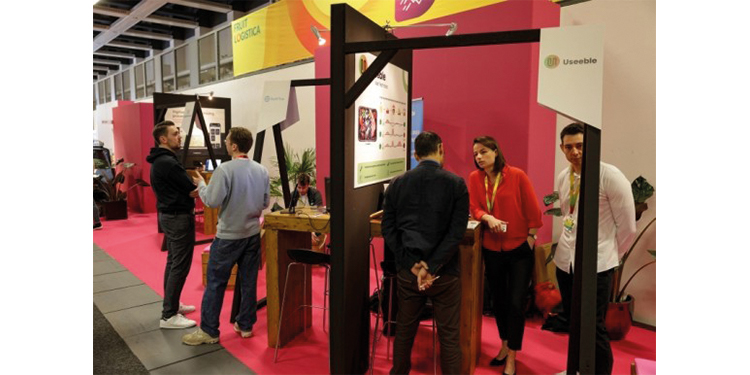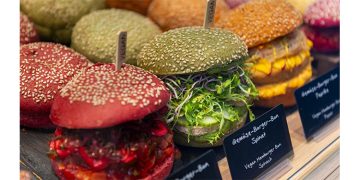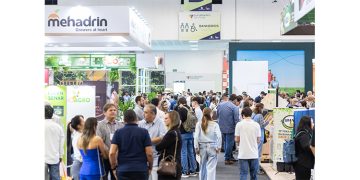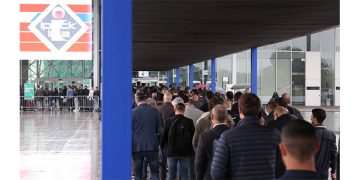20 international startups are exhibiting at FRUIT LOGISTICA 2025. Their business ideas focus on digitalisation of the industry and include AI and modern sensor technology.
What must my greenhouse look like to be profitable? Greenhouse Formula has the answer. The British startup’s online tool makes it quick and easy to develop a 2D or 3D model. It works for different plants and climate zones and provides investors and growers with a comparative aid. Greenhouse Formula’s founders are convinced that, in the face of climate change, protected cultivation will become increasingly important.
Greenhouse Formula is one of 20 startups exhibiting at FRUIT LOGISTICA 2025. In the Startup World in Hall 3.1, Messe Berlin is giving founders from ten countries the opportunity to make contact with large companies, potential partners and visitors from all over the world and build valuable business relationships. Many innovations aim to make processes more efficient and scalable through digital solutions.
AgStacked from the Netherlands, for example, uses its tool to collect data along the supply chain. Machine learning takes weather, temperature and cold chain data into account. Quality risks are minimised, due to the software proactively requiring decision-making before problems arise. This reduces waste and avoids costly rejects. Orbem’s technology has the same goal. Using MRI (magnetic resonance imaging) and deep learning algorithms, it assesses the quality of fruit, eggs or nuts and helps to categorise and sort products.
Agurotech shows how smart sensor technology can support growers. Data from soil sensors, weather stations and plant analyses gives them valuable real-time information on soil and plant health. Harvest Ai from Germany trains its SaaS tool with data obtained from the company’s own camera systems, among other sources, and uses it to improve efficiency in greenhouses.
AgStacked from the Netherlands, for example, uses its tool to collect data along the supply chain. Machine learning takes weather, temperature and cold chain data into account. Quality risks are minimised, due to the software proactively requiring decision-making before problems arise. This reduces waste and avoids costly rejects. Orbem’s technology has the same goal. Using MRI (magnetic resonance imaging) and deep learning algorithms, it assesses the quality of fruit, eggs or nuts and helps to categorise and sort products.
Agurotech shows how smart sensor technology can support growers. Data from soil sensors, weather stations and plant analyses gives them valuable real-time information on soil and plant health. Harvest Ai from Germany trains its SaaS tool with data obtained from the company’s own camera systems, among other sources, and uses it to improve efficiency in greenhouses
Innovative plant protection
Radiare AI’s technology uses the power of light alone to keep greenhouse plants healthy. The DemeGrow system’s LEDs with their precise wavelengths have been proven to enhance the vitality of plants. Unwanted microorganisms are neutralised. NanoSci , a company established by researchers at the University of Gdansk, also works with light. It provides a filter-free air purification solution using UV light from LED diodes that remove ethylene gas and grey mould, which ensures fruit stays fresh longer.
PhenoRoot focuses on the roots as the origin of many plant diseases. The startup from Israel has developed a platform for phenotyping and analysing the roots of plants cultivated in soil. The data collected can be used to gain valuable information for revitalising plants. The multidisciplinary team is already working with various companies and universities that are successfully using this technology.




















